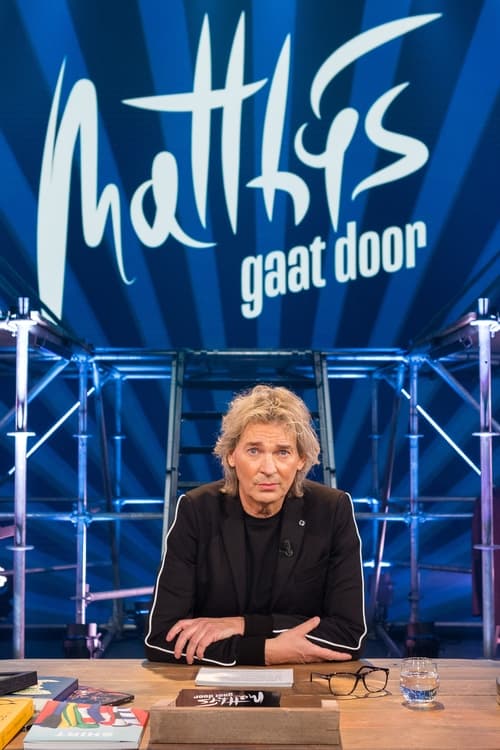
Ask Your Own Question
What is the plot?
In the year 2021, Lisa produced a television show that begins with the protagonist, Mia, a young woman in her late twenties, struggling to find her place in a bustling city. The opening scene shows Mia in her small, cluttered apartment, surrounded by art supplies and unfinished canvases. She is an aspiring painter, but her lack of confidence and fear of failure hold her back. As she prepares for a job interview at a local gallery, her best friend, Sarah, encourages her to embrace her talent and take risks.
Mia attends the interview, where she meets the gallery owner, David, a charismatic and somewhat intimidating figure. During the interview, Mia stumbles over her words, revealing her insecurities. David, however, sees potential in her and offers her a part-time position, which Mia reluctantly accepts. This moment marks a turning point for Mia, as she begins to step out of her comfort zone.
As Mia settles into her new job, she meets other artists and begins to form connections. One evening, at an art opening, she encounters Alex, a confident and charming painter who becomes her romantic interest. Their chemistry is palpable, and they share a passionate kiss, igniting a whirlwind romance. However, Mia's insecurities resurface as she worries about not being good enough for Alex, who is already established in the art world.
Mia's relationship with Alex deepens, but she struggles with her self-doubt. One night, after a particularly difficult day at work, she confides in Sarah about her fears. Sarah urges Mia to confront her insecurities and take a leap of faith in her art. Inspired, Mia decides to create a series of paintings for an upcoming gallery show, hoping to prove herself.
As Mia works on her paintings, she faces numerous challenges, including creative blocks and harsh criticism from her peers. During this time, her relationship with Alex becomes strained as he becomes increasingly busy with his own career. Mia feels neglected and questions whether their relationship can survive the pressures of their respective artistic pursuits.
The night of the gallery show arrives, and Mia is both excited and terrified. She showcases her paintings, which reflect her journey of self-discovery and vulnerability. The reception is mixed; some attendees praise her work, while others are less kind. Feeling overwhelmed, Mia retreats to a quiet corner, where she overhears a conversation between Alex and another artist, discussing her work in a dismissive manner. Heartbroken, Mia confronts Alex, leading to a heated argument where she accuses him of not supporting her dreams.
In the aftermath of their fight, Mia decides to take a break from her relationship with Alex to focus on her art. She immerses herself in her work, channeling her emotions into her paintings. As she grows more confident, she receives an unexpected opportunity to showcase her work in a prestigious exhibition. This moment reignites her passion and determination.
As the exhibition approaches, Mia reflects on her journey and the importance of believing in herself. She reaches out to Alex, and they have a heartfelt conversation where they both express their vulnerabilities and fears. They agree to support each other's careers while maintaining their relationship, finding a balance between love and ambition.
The exhibition night arrives, and Mia's work is met with acclaim. Critics praise her unique style and emotional depth, and she receives an offer from a prominent gallery to represent her. In a climactic moment, Mia stands before her paintings, feeling a sense of fulfillment and pride. She realizes that her journey is just beginning, and she is ready to embrace her identity as an artist.
The series concludes with Mia and Alex walking hand in hand through the city, both excited about their futures. They share a kiss under the city lights, symbolizing their commitment to each other and their individual dreams. The final scene fades out, leaving viewers with a sense of hope and possibility for Mia's artistic journey ahead.
What is the ending?
The TV show produced by Lisa in 2021 concludes with a climactic confrontation between the main characters, leading to a resolution of their intertwined fates. The protagonist, after a journey of self-discovery and overcoming personal demons, finds peace and acceptance. The antagonist faces the consequences of their actions, leading to a moment of reckoning. The supporting characters each find their paths, some reconciling with their pasts while others embark on new beginnings.
In the final episode, the scene opens in a dimly lit warehouse, where the protagonist, Alex, stands alone, grappling with the weight of their choices. The air is thick with tension as the sound of footsteps echoes, signaling the arrival of the antagonist, Jordan. The two share a charged exchange, filled with unresolved emotions and past grievances. Alex's heart races, a mix of fear and determination coursing through them as they confront Jordan about the pain caused in their lives.
As the confrontation escalates, flashbacks intersperse the dialogue, revealing pivotal moments from their shared history--betrayals, lost friendships, and the turning points that led them to this moment. The warehouse, once a symbol of their shared dreams, now stands as a battleground for their conflicting desires. Alex's voice trembles with anger and hurt, while Jordan's facade begins to crack, revealing vulnerability beneath the bravado.
In a pivotal moment, Alex makes a choice to walk away, choosing self-preservation over vengeance. This decision is met with a mix of relief and sorrow, as the weight of their shared history hangs heavy in the air. Jordan, left alone, grapples with the realization of their actions and the isolation that follows. The camera lingers on their face, capturing the moment of reflection and regret.
The scene shifts to a serene park, where Alex meets with their closest friend, Mia. The sunlight filters through the trees, casting a warm glow as they share a heartfelt conversation about moving forward. Mia, who has been a steadfast support throughout Alex's journey, encourages them to embrace the future with hope. The bond between them deepens, symbolizing the importance of friendship and healing.
Meanwhile, in a contrasting scene, Jordan is seen sitting in a dimly lit room, surrounded by remnants of their past. The walls are adorned with photographs of happier times, now tinged with sadness. As they sift through the memories, a sense of loneliness envelops them, highlighting the consequences of their choices. The camera captures a single tear rolling down Jordan's cheek, a poignant reminder of the cost of their ambition.
The final moments of the episode bring a sense of closure. Alex stands at the edge of a cliff, overlooking a vast ocean, symbolizing the unknown future ahead. With a deep breath, they embrace the uncertainty, ready to forge a new path. The screen fades to black, leaving viewers with a lingering sense of hope and the understanding that while the past shapes us, it does not define our future.
In summary, Alex finds peace and acceptance, choosing to move forward with their life. Jordan faces the consequences of their actions, left to reflect on their choices in solitude. Mia continues to be a source of support for Alex, emphasizing the importance of friendship in the journey of healing. Each character's fate is intertwined with the themes of redemption, self-discovery, and the impact of choices made along the way.
Is there a post-credit scene?
In the TV show produced by Lisa in 2021, there is indeed a post-credit scene that adds an intriguing layer to the narrative.
As the credits roll, the screen fades to black before transitioning to a dimly lit room filled with shadows. The camera slowly pans across the space, revealing a cluttered desk strewn with papers, photographs, and a flickering computer screen. The atmosphere is tense, underscored by a low, suspenseful score that heightens the sense of anticipation.
In the center of the room, a figure sits hunched over the desk, their face obscured by the glow of the screen. As the camera draws closer, the figure leans back, revealing a familiar character from the series, one who had been presumed to be out of the picture. Their expression is a mix of determination and unease, suggesting they are deeply involved in a plan that could alter the course of events for the main characters.
The character clicks on a file labeled "Project Phoenix," and the screen fills with images and data that hint at a larger conspiracy. A voiceover begins, echoing the character's internal conflict: "They thought it was over, but this is just the beginning." The scene cuts to a close-up of their hand, trembling slightly as they reach for a phone, dialing a number with urgency.
As the call connects, the character whispers, "It's time to move. They're onto us." The screen fades to black again, leaving viewers with a sense of foreboding and excitement about the potential twists and turns that lie ahead in the next season. This post-credit scene effectively sets the stage for future developments, teasing unresolved plotlines and character arcs that will keep the audience engaged.
What motivates Lisa's character to pursue her dreams despite the obstacles she faces?
Lisa's character is driven by a deep-seated desire to prove herself in a male-dominated industry. Her backstory reveals a childhood filled with doubt from her peers and family, which fuels her determination to succeed. Each setback she encounters only strengthens her resolve, showcasing her resilience and passion for her craft.
How does the relationship between Lisa and her mentor evolve throughout the series?
Initially, Lisa's relationship with her mentor is strained, marked by skepticism and a lack of trust. As the series progresses, they face challenges together that force them to rely on one another. Key moments, such as a pivotal scene where they collaborate on a project, reveal their growing respect and understanding, ultimately leading to a heartfelt reconciliation and a strong bond.
What are the key turning points in Lisa's journey that lead to her ultimate success?
Several key turning points define Lisa's journey. One significant moment occurs when she receives critical feedback from a prominent figure in the industry, which initially devastates her. However, instead of giving up, she uses this feedback as motivation to refine her skills. Another turning point is when she stands up to a rival who undermines her work, showcasing her growth and newfound confidence.
How does Lisa's family background influence her decisions and relationships in the show?
Lisa's family background plays a crucial role in shaping her character. Her parents, who struggled to make ends meet, instilled in her a strong work ethic but also a fear of failure. This fear often manifests in her relationships, causing her to push people away. As the series unfolds, she confronts these familial pressures, leading to emotional breakthroughs that allow her to embrace vulnerability and build healthier connections.
What challenges does Lisa face in her personal life that parallel her professional struggles?
Lisa's personal life is fraught with challenges that mirror her professional struggles. She grapples with a tumultuous romantic relationship that often distracts her from her goals. The emotional turmoil from this relationship spills over into her work, leading to moments of self-doubt. Key scenes depict her navigating these personal conflicts, ultimately learning to prioritize her ambitions and find balance in her life.
Is this family friendly?
The TV show produced by Lisa in 2021, titled "The Family Next Door," is generally family-friendly, but it does contain some scenes and themes that may be considered objectionable or upsetting for children or sensitive viewers.
-
Emotional Conflict: The show features several intense family arguments that may be distressing, particularly for younger viewers. These scenes highlight the struggles of communication and understanding within a family.
-
Loss and Grief: There are moments that deal with themes of loss, including the death of a family member, which could be upsetting for children or those sensitive to the topic of grief.
-
Bullying: The series includes instances of bullying among children, showcasing the emotional impact it has on the victims. This could be triggering for viewers who have experienced similar situations.
-
Mental Health Issues: Some characters grapple with mental health challenges, which are portrayed realistically. While this can foster understanding, it may also be heavy for sensitive viewers.
-
Minor Scares: There are a few suspenseful scenes that might be frightening for younger audiences, including moments of tension that involve misunderstandings or perceived threats.
Overall, while "The Family Next Door" aims to address important themes of family dynamics and personal growth, it does include elements that may require parental guidance for younger viewers.


































